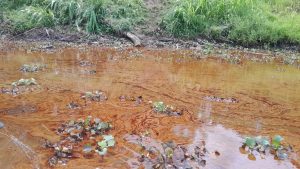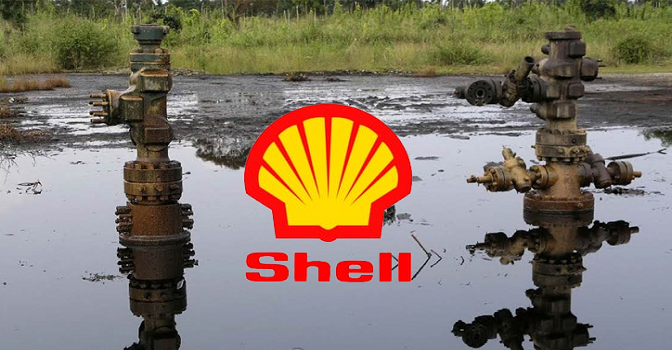CurrentReport Blog On Sunday night, February 16, 2025, a significant crude oil spill was reported along Obololi Creek in the Southern Ijaw Local Government Area of Bayelsa State, Nigeria. The Environmental Defenders Network (EDEN) has urgently called upon the National Oil Spill Detection and Remediation Agency (NOSDRA) and Shell Petroleum to address the environmental crisis.

In an official statement, EDEN’s Media and Communications Manager, Elvira Jordan, emphasized the unprecedented nature of this spill, noting that it is the first to affect the community’s primary water source. “The water body is the community’s only source for drinking and everything else,” Jordan stated, highlighting the immediate threat to the residents’ health and livelihood.
Obololi community is intersected by pipelines owned by Oando and Shell, with locals asserting that Shell’s infrastructure, installed in 1973, has not undergone replacement since its installation. This prolonged use raises concerns about the integrity of the aging pipelines and their susceptibility to failures leading to environmental disasters.
EDEN has outlined several urgent actions for Shell to undertake:
-
Provision of Potable Water: Immediate supply of clean drinking water to the affected community to prevent health crises.
-
Joint Investigation Visit (JIV): Prompt mobilization for a comprehensive assessment of the spill’s cause and extent.
-
Cleanup and Remediation: Swift initiation of environmental cleanup operations to restore the contaminated ecosystem.
-
Compensation: Fair restitution for the community members whose lives and livelihoods have been disrupted by the spill.
Historically, Shell has faced scrutiny over its environmental practices in the Niger Delta. Reports indicate that between 2011 and 2022, Shell reported 1,010 oil spills, resulting in the loss of approximately 110,535 barrels of oil. These incidents have significantly impacted local communities, leading to pollution of water sources, destruction of farmlands, and adverse health effects. The company’s response times to such spills have also been criticized, with delays exacerbating the environmental and social consequences.
In response to the Obololi spill, local authorities are taking action. The leadership of the Southern Ijaw Local Government and the Bayelsa State Commissioner for Environment have announced plans to visit the affected area for an on-site assessment. Their evaluation aims to determine the immediate needs of the community and formulate a strategic response to mitigate the spill’s impact.
The Obololi incident underscores the pressing need for stringent maintenance protocols for oil infrastructure, especially those in operation for several decades. Regular inspections, timely replacements, and adherence to international safety standards are imperative to prevent such environmental catastrophes.
As the situation develops, the affected community awaits decisive action from Shell and relevant authorities to address the immediate crisis and implement measures to prevent future occurrences. The incident serves as a stark reminder of the delicate balance between resource extraction and environmental stewardship, emphasizing the importance of corporate responsibility in safeguarding vulnerable ecosystems and communities.












